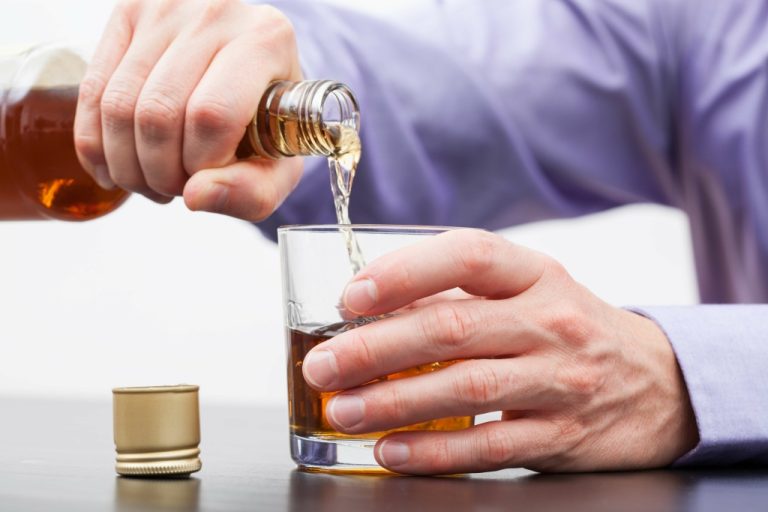When AUD and NPD occur together, it can increase a person’s hostility and aggression. This can make treatment more challenging than it would be to treat each issue separately. NPD is characterized by a persistent pattern of grandiosity and need for admiration, while AUD involves a problematic pattern of alcohol use leading to significant impairment. The combination of NPD and AUD often results in more severe relationship problems and social dysfunction than either disorder alone. Individuals may struggle with maintaining employment, friendships, and romantic partnerships.
Pathways To Healing: Treatment Options For Alcoholic Narcissism
While not all alcoholics are narcissistic, and not all narcissists are alcoholics, there are some similarities between the two conditions. Both alcoholics and narcissists tend to view others as either enablers or potential threats. Alcoholics may see others as people who can help them get attention or maintain their addiction, while narcissists may view others as people who can either boost or damage their self-esteem. These include fluctuating or low self-esteem, the devaluing of others, and a sense of invulnerability. This article looks at the links between narcissism and addiction and explains why people with narcissism may be more likely than other people to engage in addictive behaviors.
Alcohol Abuse and Dependence

Therapy can help covert narcissist alcoholic people with NPD understand their condition and learn how to interact and communicate with others more effectively. Some doctors may prescribe medications to treat other disorders that occur along with NPD, but there are no medications to treat NPD specifically unless future research proves otherwise. Try activities like meditation, yoga, or deep breathing that can help you remain calm when dealing with someone with NPD. Ensure you have a reliable support system outside of your relationship, as coping with someone with grandiose and vulnerable narcissism can be emotionally draining. A person with pathological narcissism may not recognize their own behavior and be unable to admit that they might have a problem.
What’s the outlook for people with NPD or AUD?
This can manifest as a tendency to exploit relationships and disregard others’ feelings for personal gain. Individuals struggling with addiction, however, may still care deeply about the people in their lives but are unable to stop their destructive behavior because of the overwhelming nature of their addiction. Narcissism Substance abuse often stems from an underlying fragility in self-esteem, which drives the need for admiration and validation. In contrast, addiction may be a coping mechanism for deeper emotional pain, trauma or mental health issues like depression or anxiety.

- Fill out a quick form to connect with specialists and explore personalized paths to lasting recovery.
- We can provide a medically supervised detox (a necessity for alcohol withdrawal) and a range of outpatient programs, beginning with the most intensive partial hospitalization program (PHP).
- With the right support, treatment, and commitment to recovery, it is possible to break free from the cycle of narcissism and alcoholism and build healthier and more fulfilling lives.
- If they relapse, they may feel like a failure and can be quick to blame others.
They may experience difficulty developing meaningful relationships that last. This may be because their personality is sometimes abusive and belittling toward others. Additionally, people with pathological narcissism may find it difficult to handle anything they perceive as criticism. They may become angry or impatient, feel slighted easily, have difficulty controlling behavior and emotions, and experience major problems handling stress and adapting to change.
Sure, it might make them jerks, but the vast majority of legitimate addicts who possess a true willingness to seek help and a strong desire to recover probably don’t have NPD. If they did, they either wouldn’t seek help to begin with or they’d be very slack with their recovery program, failing to exhibit https://www.kamtex.de/type-2-diabetes-and-alcohol/ any real initiative to thoroughly work at it. Narcissists can exhibit characteristic behaviors to varying degrees as well. People with drug abuse, alcohol use disorder, or other addictions frequently have similar characteristics. If you are married to an alcoholic narcissist, here are 20 steps to help you deal with your narcissistic alcoholic husband to find greater peace and well-being.
Contact Design For Recovery Through Our Form!
- Addressing the underlying depression, denial, or childhood trauma that drives both narcissism and alcohol consumption can provide the clarity needed for lasting change.
- In summary, whether alcohol is to blame or not, having a person with narcissistic traits in your life can be exhausting and upsetting.
- One of the core traits of narcissism is self-centeredness — a focus on one’s own desires and needs, often at the expense of others.
- Group therapy may help individuals with NPD by providing opportunities to develop empathy, improve social skills, and receive feedback from others.
- The path to recovery may be long and winding, but it’s a path that many have walked before.
While there is room for interpretation, a person with NPD and/or AUD must meet a minimum standard before a diagnosis can be delivered with confidence. Making a dual diagnosis of NPD and AUD can be challenging and something that only a qualified mental health professional can make. If people have risk factors for AUD, feel they are drinking excessively, or cannot control their alcohol intake, they can speak with a healthcare professional. For a person to recover fully, they’ll generally need treatment that addresses both disorders.
Seeking Help and Recovery
Pennsylvania’s detox facilities are increasingly focused on treating co-occurring conditions like narcissism and alcoholism together. By addressing both narcissism and alcoholism simultaneously, individuals can begin to break the cycle of destructive behavior and work toward a healthier future. Alcohol use disorder (AUD) and narcissistic personality disorder (NPD) are both mental health conditions that can co-occur. Research indicates that individuals diagnosed with NPD are more likely to develop AUD compared to those without narcissistic traits. It is essential to approach the treatment of co-occurring narcissism and alcoholism with a comprehensive and integrated approach. Seeking professional help is crucial in managing these complex conditions.
- Understanding the relationship between alcohol abuse and narcissistic behaviors is crucial in addressing the complex interplay between the two.
- It is important to recognise that exhibiting narcissistic behaviour while drunk does not inherently mean that a person has NPD.
- They may blame you for things happening due to their insecurity or manipulate you into believing that challenges in your life are the results of your actions.
- NPD often interferes with a person’s ability to form genuine, mutual connections.
In such cases, it’s vital to opt for treatment centers that can tackle both issues. For those in Pennsylvania, alcohol rehab in Lake Ariel PA is a good choice. Our facility provides specialized programs that focus on treating co-occurring disorders. We offer integrated treatment plans that address both the psychological and physical aspects of addiction and narcissism, helping individuals achieve long-term recovery.

Narcissism and Alcoholism: Understanding the Complex Interplay
Sometimes, self-destructive tendencies cause people with NPD to make impulsive life-changing decisions, including cheating on a spouse or failing to follow proper workplace procedures. AUD increases risk-taking and self-destructive behaviors by lowering inhibitions and increasing symptoms of both conditions. Chronic alcohol abuse, coupled with narcissistic personality disorder (NPD), can severely affect an individual’s physical and mental health. The combination of these conditions often results in a cycle of dependency and deteriorating health.
Narcissists crave the feeling of superiority and they are always seeking new and better triumphs that lead to greater glory. When narcissists do not receive the admiration they crave, such as through criticism, indifference or disrespect, they exhibit significant distress. This is where the narcissist and addiction often intersect, in a place where their self-perception is challenged. Addiction and NPD are frequently discussed in pairs, and while the two can certainly exist comorbidly, they don’t need to go hand in hand. For the narcissist, that external ‘something’ comes from people’s validation. For the addict, on the other hand, it comes directly from a substance or a particular compulsive behavior.

